News archive
On this page you can search for older news. Choose a topic, type of news or enter your own keyword to filter out news.
View compact

We’re to keep a physical distance to reduce the risk of infection, but it’s now on an emotional level that we need to get closer” says Danuta Wasserman, director of the National Centre for Suicide Research and Prevention of Mental Ill-Health (NASP) at Karolinska Institutet.
News
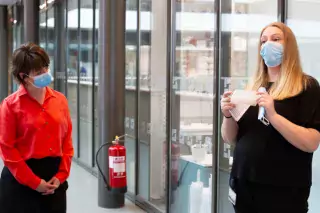
On 8 April, Matilda Ernkrans, Minister for Higher Education and Research, visited KI and SciLifeLab, which are coordinating a major COVID-19 diagnosis and research initiative. Under the direction of KI’s president, the Minister observed, amongst other things, how a laboratory at KI is built up to increase its analysis capacity for the testing of hospital staff and patients.
News
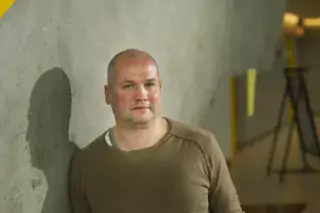
Karolinska Institutet’s president Ole Petter Ottersen has set up a resource team for research ethics in relation to the COVID-19 pandemic. The team comprises four experts from KI, one of whom is Niklas Juth, senior lecturer and docent of medical ethics and group convenor.
News
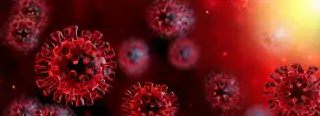
A drug already tested against lung disease could potentially inhibit COVID-19 by reducing the coronavirus load that enters the lungs and other organs. That is according to a study in human cell cultures and organoids by researchers at Karolinska Institutet in Sweden and the University of British Columbia (UBC) in Canada, published in the journal Cell.
News
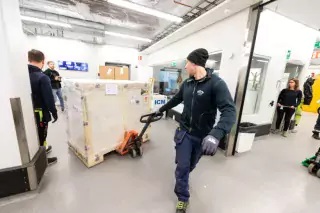
Karolinska Institutet has now received the test material that will allow scientists to perform 5,000 analyses a day on patient samples. The lab will be ready next week thanks to the swift cooperation of KI researchers and Knut and Alice Wallenberg Foundation.
News
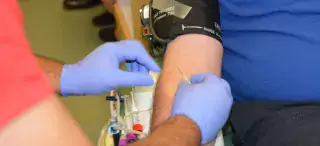
In a small clinical trial just granted approval, about 30 COVID-19 patients at Karolinska University Hospital may soon begin to receive blood plasma from people who have recovered from the disease. Sweden’s Ethical Review Authority has approved the trial treatment, and its effectiveness will be evaluated in a study by researchers at Karolinska Institutet and the Karolinska University Hospital.
News

With rising numbers of COVID-19 cases and a healthcare sector under increasing strain, healthcare personnel can find themselves facing difficult situations and moral challenges. Researchers at Karolinska Institutet and Uppsala University have recently published a paper in the journal Prehospital and Disaster Medicine precising what is known about moral distress, its risk and protection factors and likely implications. They also present suggestions about how the adverse effects can be mitigated.
News
The National Centre for Suicide Research and Prevention (NASP) wants to raise awareness about the potential increase in suicide and self-harm behavior as a result of the societal impact of the corona pandemic (COVID-19). Risks are linked but not limited to the social, economic and health-related consequences of the pandemic which will continue in the future.
News
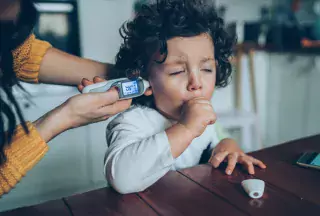
Children infected with the new coronavirus generally have less severe symptoms than adults, they rarely need intensive care and very few child deaths have been reported. This according to a systematic review of COVID-19 in children, based on 45 relevant publications and performed by researchers at Karolinska Institutet. The review is published in the scientific journal Acta Paediatrica.
News

Researchers at Karolinska Institutet in Sweden and the University of Basel in Switzerland have produced a mathematical model that shows that the spread of the new coronavirus can decline in the summer and then return in the autumn and winter. The analysis has been published in the scientific journal Swiss Medical Weekly.
News
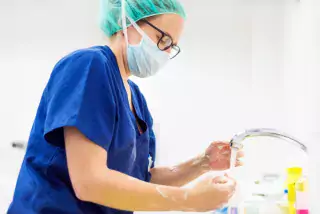
Karolinska Institutet has launched COVID-19 courses for care providers and medical personnel following a request from the National Board of Health and Welfare. After one week of intense preparation, two online courses are now available.
News
The president of Karolinska Institutet, Professor Ole Petter Ottersen, has established a team of experts for Covid-19 comprising eight of the university’s researchers with expertise in a range of fields related to the spread of infection. One of them is doctoral students Hedvig Glans, assistant consultant and head of inpatient care at Karolinska University Hospital’s infection clinic in Huddinge.
News
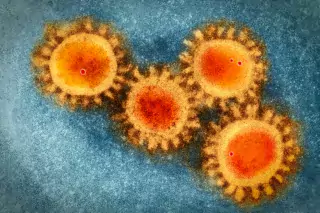
Professor Ali Mirazimi at Karolinska Institutet is part of a consortium that has received 1 million Canadian dollars (almost 7 million kronor) to try to develop a drug candidate against COVID-19. Mirazimi will assist with in vitro and in vivo infection models for SARS-CoV-2. The project is a collaboration with Canadian and Chinese researchers.
News
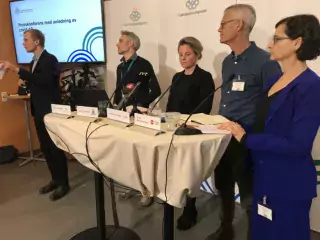
Karolinska Institutet’s Centre for Research on Health Care in Disasters has been tasked by the National Board of Health and Welfare to arrange an education, training and practice package (e.g. on the handling of personal protective equipment) for medical personnel in connection with the Covid-19 outbreak.
News
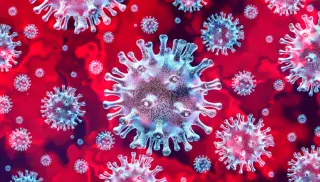
Researchers at Karolinska Institutet are on track to produce a vaccine against the new coronavirus, SARS-CoV-2. Several vaccine candidates are currently available in the freezers at the Department of Laboratory Medicine and the first animal studies are slated to begin at the end of March, according to Professor and Head of Department Matti Sällberg who is leading the effort together with virus researcher and Professor Ali Mirazimi and researcher Gustaf Ahlén.
News
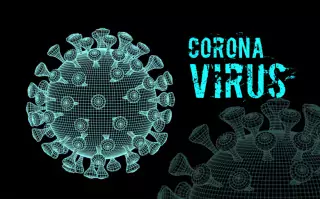
Three coronavirus projects coordinated by researchers at Karolinska Institutet have moved onto the grant negotiation phase in a bid for 9 million euros (95 million kronor) in EU funding. The projects aim to find a vaccine, immunotherapies and neutralizing antibodies against SARS-CoV-2 and are being coordinated by KI’s Matti Sällberg, Qiang Pan Hammarström and Benjamin Murrell.
News
For some time now, various text messages have been circulated with an invitation to send an e-mail to an e-mail address that includes the words “karolinskainstituten” or “karolinska”. The invitation is justified by the claim that the sender can provide “important info for you about Coronavirus”. These text messages are fake and should not be answered! Karolinska Institutet is not the sender of these text messages.
News
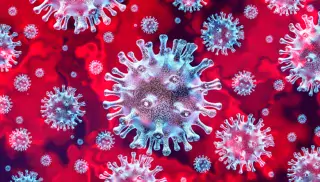
Researchers worldwide are trying to develop a vaccine and antiviral treatments against the new corona virus spreading in China. At Karolinska Institutet, virus researchers Ali Mirazimi and Matti Sällberg are working to develop a prototype vaccine against the virus. But vaccine development takes time, and it will likely take at least six to nine months before an application for clinical studies can be filed and another two to three years before a vaccine could be ready for the public.
News
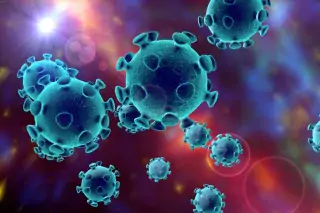
The new corona virus continues to spread despite significant measures taken by the authorities in China to stop the outbreak. However, this time the fast response coupled with increased knowledge about the nature of the virus means the world is better placed to handle the outbreak compared to 18 years ago when SARS caused widespread concern, says virus researcher Ali Mirazimi, adjunct professor at the Department of Laboratory Medicine at Karolinska Institutet.
News
